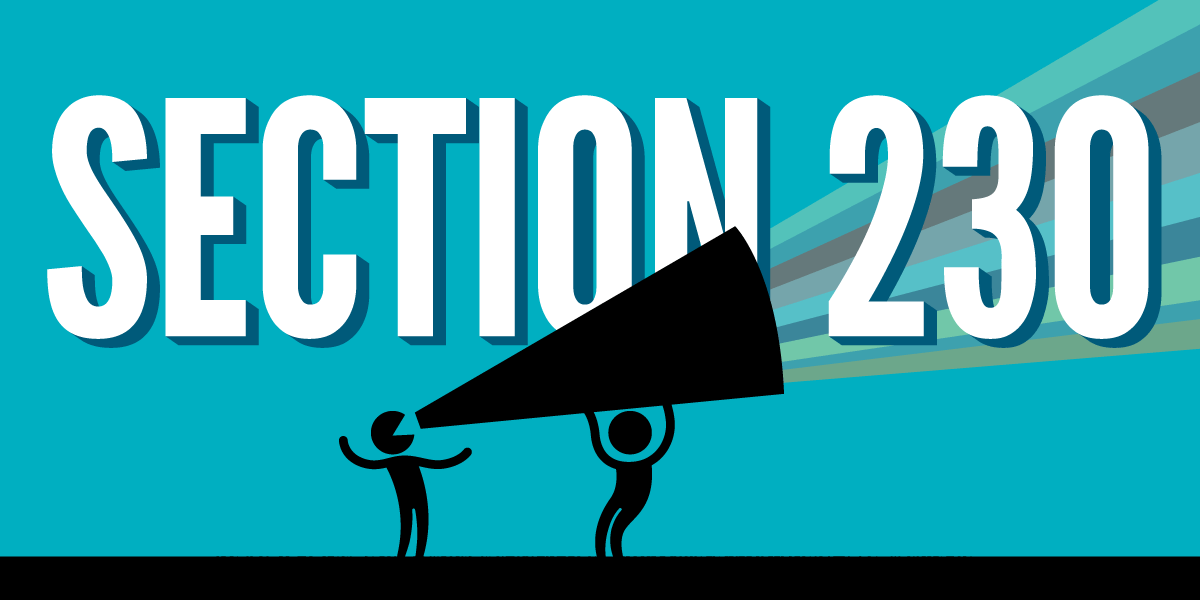It’s no fun when your friends ask you to take sides in their disputes. The plans for every dinner party, wedding, and even funeral arrive at a juncture where you find yourself thinking, “Dang, if I invite her, then he won’t come.”
It’s even less fun when you’re running an online community, from a groupchat to a Mastodon server (or someday, a Bluesky server), or any other (increasingly cheap and easy) space where your friends (and their friends) can hang out online, far from the unquenchable dumpster-fires of Big Tech social media.
But there’s a circle of hell that’s infinitely worse than being asked to choose sides in a flamewar: being threatened with a lawsuit for refusing to do so (or even for complying with one side’s request over the other).
At EFF, we’ve had decades of direct experience with the, uh, heated rhetoric that attends online disputes (there’s a reason the most famous law about online arguments was coined by the very first person EFF ever hired).
That’s one of the reasons we’re such big fans of Section 230 (47 U.S.C. § 230), a much-maligned, badly misunderstood law that protects people who run online services from being dragged into legal disputes between their users.
Getting sued can profoundly disrupt your life, even if you win. Much of the time, people on the receiving end of legal threats are forced to settle because they can’t afford to defend themselves in court. There’s a whole cottage industry of legal bullies who’ll help the thin-skinned, vindictive and deep-pocketed to silence their critics.
That’s why we were so alarmed to see a bill introduced in the House Energy and Commerce Committee that would sunset Section 230 as of December 31, 2025, with no provision to protect online service providers from being conscripted into their users’ online disputes and the legal battles that arise from them.
Homely places on the internet aren’t just a curiosity anymore, nor are they merely a hangover from the Web 1.0 era.
In an age of resurgent anti-monopoly activism, small online communities, either standing on their own, or joined in loose “federations,” are the best chance we have to escape Big Tech’s relentless surveillance and clumsy, unaccountable control.
Look, running online communities is already a thankless task that can convert a generous digital host into a bitter ex-online host.
The alternatives to Big Tech come from individuals, co-ops, nonprofits and startups. These cannot exist in a world where we change the law to make people who offer a space where communities may gather vulnerable to being dragged into lawsuits between their community members.
It’s one thing to volunteer your time and resources to create a hospitable place online; it’s another thing entirely to assume an uninsurable risk that could jeopardize your life’s savings, your home, and your retirement fund. Defending against a single such case can cost hundreds of thousands of dollars.
That’s very bad news indeed, because a world without Section 230 will desperately need alternatives to Big Tech.
Big Tech has deep pockets, which means that even if it creates a system of hair-trigger moderation that takes down anything remotely controversial on sight, it will still attract a staggering number of legal threats.
There’s a useful analogy here to FTX, the disgraced, fraudulent cryptocurrency exchange. Like Big Tech, FTX has some genuinely aggrieved users, but FTX has also been targeted by opportunistic treasure hunters who have laid claims against the company totaling 23.6 quintillion dollars.
We know what Big Tech will do in a post-230 world, because some of us are already living in that world. Donald Trump signed SESTA-FOSTA into law in 2018. The law was billed as a narrowly targeted measure to make platforms liable for failing to intervene in cases where they were aware of human trafficking. In practice, the law has been used to indiscriminately target consensual sex work, placing sex workers in harm’s way (just as we predicted).
Without Section 230, Big Tech will shoot first, ask questions later when it comes to taking down controversial online speech (like #MeToo or Black Lives Matter). For marginalized users with little social power (again, like #MeToo or Black Lives Matter participants), Big Tech takedowns will be permanent, because Big Tech has no incentive to figure out whether it’s worth hosting their speech.
Meanwhile, for the wealthy and powerful, a post-230 world is one where dictators, war criminals, and fraudsters will have a new, powerful tool to silence their critics.
A post-230 world, in other words, is a world where Big Tech is infinitely worse for the users who already suffer most from the large platforms’ moderation failures.
But it’s also a world where it’s infinitely harder to start an alternative to Big Tech’s gigantic walled gardens.
No wonder tech billionaires support getting rid of Section 230: they understand that their overgrown, universally loathed services are vulnerable to real alternatives.
Four years ago, the Biden Administration declared that promoting competition was a whole-of-government priority (and we cheered). Getting rid of Section 230 will do the opposite: freeze the internet in its current, monopolized state, creating a world where the rule of today’s tech barons is never challenged by a more democratic, user-centric internet.



